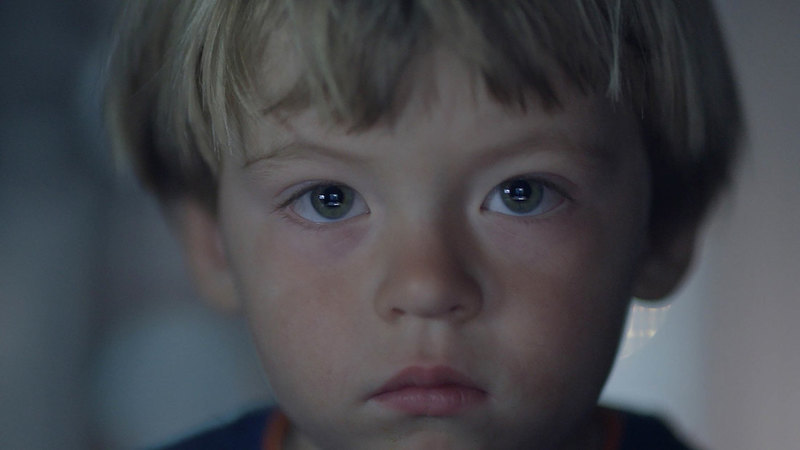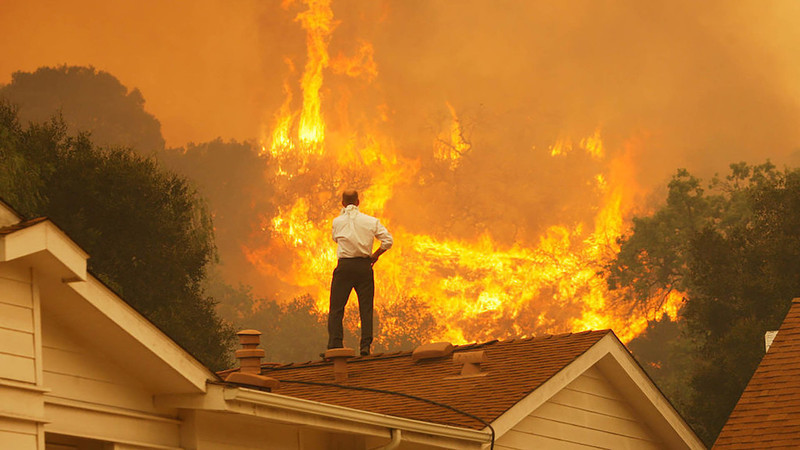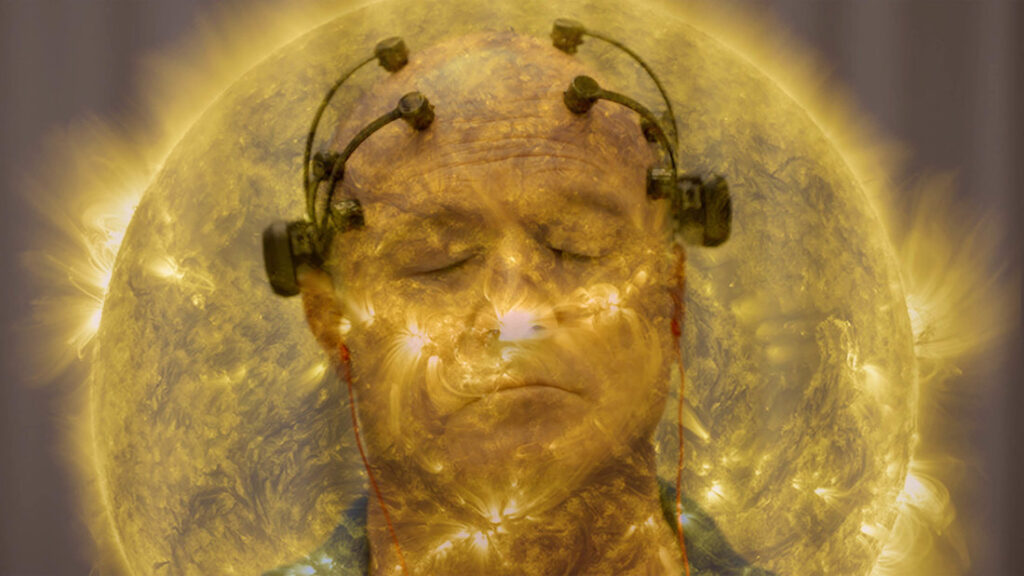Theo Anthony’s “All Light, Everywhere” is one of the more mind-bending films from Sundance this year, and also the only one I saw that included an extensive bibliography in its closing credits. The film finds Anthony confidently wading into the discussion of police surveillance, engaging the viewer by highlighting the artifice of making a doc, and the power in being the watcher. The human eye sees what it wants to see; a camera’s frames leave out information; a body cam worn by a figure of imbalanced authority will only make that worse. “All Light, Everywhere” is brilliant, vital criticism about American policing that also speaks to the limitless artistic potential of non-fiction filmmaking.
Anthony received a special jury award for “Nonfiction Experimentation” for “All Light, Everywhere,” a testament to how the film is both experimental but incredibly insightful. It has the power of ten documentaries, at least, but Anthony weaves them together with assured focus, creating a rich tapestry about an alarming American issue. There’s a tour through the Taser and body cam-producing Axon company that looks like the prequel to “Robocop”; a body cam training session with antsy Baltimore cops, uncomfortable about the cameras pointed at them; the history of moving images related to eugenics and white supremacy, the notion of faces and crime. Sporadically, Anthony cuts between footage of people staring up at the eclipse with sunglasses. The editorial approach is unpredictable, but Anthony’s sensibilities are an excellent guide.
Here is a film in which a documentarian engages their hot-topic ideas through what they know, and in this case it’s about the dynamic between the subject and camera, philosophy about image, and a deal of film history that is not as celebrated as the Lumiere brothers. Its meta approach is just the beginning; “All Light, Everywhere” expands one’s perspective on both the origins of the moving image, and the current state of surveillance, in a way that a more direct documentary on the subject likely could not. I won’t soon be forgetting it, and of the many strong films I saw at Sundance this year, I hope in particular that many more people will get to experience and engage the ethereal criticism of “All Light, Everywhere” soon.

Natalia Almada’s “Users,” which won the Directing Award in the US Documentary Competition, adds to a lineage of mostly wordless documentaries that elaborate their theses with massive images and hypnotic pacing: recent movies have included “Aquarela,” and “Anthropocene: The Human Epoch.” Compelling films of this ilk deal with nature and technology, and “Users” in particular is inspired by birth and seeing the world through a child’s eyes. Without making too fine a point of it, “Users” reflects with questions for a new generation, while reckoning with what imprint older generations will leave behind.
The documentary has a great flow, and Almada’s curiosity often becomes our own. We’re never sure what type of shot is coming next—it could be a more stagnant cut to a swimmer in a tank, wading through water by not making progress, or it could be a shot that sprints alongside a train. All images are given a tender length so that we stop looking at it so literally and allow light and texture to blur into something else. Suddenly a wide overheard shot of crashing waves starts to look like a wall with collapsing paint, or the shot of crushed microchips looks like a waterfall.
It’s more that the feeling can be fleeting—days since seeing the film, few images have stuck with me as much as the aforementioned movies. Maybe that’s in part because “Users” is not entirely full of images related to technology and understanding technology that I had never seen before. But there is plenty of poetry within “Users,” and for viewers hungry for this filmmaking, for this inhale-exhale approach to the world in which we are just a dot, it’s recommended.

Pedro Kos’ US Documentary Competition title “Rebel Hearts” recounts an incredible feminist saga about the Sisters of the Immaculate Heart in California in the 1960s, a group of nuns who pushed back against the misogyny, patriarchy, and bad management of the men like Cardinal McIntyre who tried to control them. In a larger sense, the story captures how progressive thinking is a liberating mindset, while using an exciting idea that even those with a religious background can certainly align with more progressive social issues. Cardinal McIntyre wanted them to teach all of the diocese’s schools (despite their lack of experience, and the massive class size), control what they wore, and squash their own sense of freedom. They did not stand for it, and even by today standards what they achieved feels radical.
Their activism became a media phenomenon, especially with focus on Corita Kent, a nun and pop artist who used her faith to create forceful, inspiring text-based art. As one of the film’s talking head interview subjects puts it, “These were highly educated women who were tasting freedom, and they liked the taste.” “Rebel Hearts” tackles this legacy, with many of its interviews coming from previously shot footage by Shawnee Isaac-Smith.
Director Kos almost seems to take on “Rebel Hearts” as a documentary filmmaking challenge—how do you make a recollection about this story visually exciting? He goes for overt song choices (including modern pop dance tunes) and flashy animation that looks like construction paper, giving flashbacks a storybook look. It’s a valiant effort to make the story seem present, but whenever “Rebel Hearts” gets stuck on recounting the events of the story, it still feels a bit flat. The story of the women at the Immaculate Heart College will always be inspirational; it’s more that “Rebel Hearts” struggles to take on a life of its own.

Lucy Walker’s “Bring Your Own Brigade,” which screened as part of the US Documentary Premieres section, engages a large concept but with a sometimes frustrating approach. It’s a long look at the devastation caused by California fires in Paradise and Malibu in 2018, one that mixes multiple personal accounts with those of firefighters and town officials. Walker’s film reaches a more complicated conclusion that while Americans might have the power to help to themselves, they are not likely to change the way they want to live.
The documentary takes an expansive time to focus on the fires, and the chaos of being surrounded by flames while trying to get out. Residents talk about the fear experienced from the moment, and what they had seen; told with a mix of professional and amateur footage, the depiction of this event is incredibly harrowing and effective with its scope. It’s so claustrophobic that a great sense of relief comes from dash-cam footage that lasts maybe five seconds—a car turning around after a road had been cleared, and suddenly hitting the freedom of a clear sky. This is such a powerful impression to pass onto the viewer, and it does carry the film into its next passages.
There’s still about 90 minutes to go after this development, and “Bring Your Own Brigade” is more about the aftermath—the devastation, the blame that was passed around, the wisdom that scientists have to share, the restorative moments of people helping others, and more. Walker’s film doesn’t always get these moments to flow into each other, and sometimes they’re especially held back by a cheesy, somber music choice (Max Richter’s “On the Nature of Daylight”? Again?), or by Walker’s strange impulse to freeze-frame an image and then insert her voiceover into the narrative. But the larger ideas resonate deeper than its flaws, whether it’s information about how more trees planted by logging companies have led to these fires, the psychology that comes from interviewing people about losing objects associated with memories, or the nuanced point that fire has long been a vital force in nature. It’s more that we’ve lost control of how to live with it.












